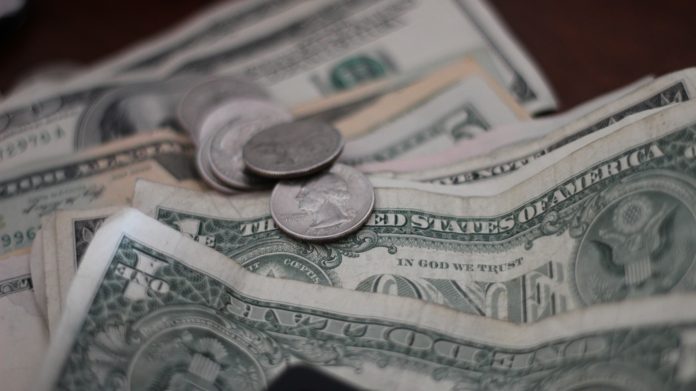Weak U.K. inflation data pulled the pound lower versus the euro on Wednesday. The pound euro exchange rate dropped to a nadir of €1.1519 before picking up marginally towards the close.
| What do these figures mean? |
|---|
|
When measuring the value of a pair of currencies, one set equals 1 unit and the other shows the current equivalent. As the market moves, the amount will vary from minute to minute. For example, it could be written: 1 GBP = 1.13990 EUR Here, £1 is equivalent to approximately €1.14. This specifically measures the pound’s worth against the euro. If the euro amount increases in this pairing, it’s positive for the pound. Or, if you were looking at it the other way around: 1 EUR = 0.87271 GBP In this example, €1 is equivalent to approximately £0.87. This measures the euro’s worth versus the British pound. If the sterling number gets larger, it’s good news for the euro. |
U.K. inflation, as measured by the consumer price index (CPI) disappointed investors. Analysts had been predicting an increase in inflation to 2% in March. However, inflation remained steady at 1.9%, unchanged from February. The fact that inflation didn’t move higher was surprising given the recent strength in wages. Furthermore, inflation below the Bank of England’s 2% target will keep the central bank in wait and see mode for longer. With Brexit uncertainties still lingering and inflation holding steady the central bank has few reasons to consider hiking interest rates.
More bad news for the pound followed as VISA reported that consumer spending fell again in March. Declines of 0.2% follow declines in January and February of 1.2% and 1.8% respectively, as political and economic in uncertainty weighed on consumer sentiment. Reduced spending decreases inflationary pressures, meaning an interest rate rise from the BoE was less likely.
| Why do raised interest rates boost a currency’s value? |
|---|
| Interest rates are key to understanding exchange rate movements. Those who have large sums of money to invest want the highest return on their investments. Higher interest rate environments tend to offer higher yields. So, if the interest rate or at least the interest rate expectation of a country is relatively higher compared to another, then it attracts more foreign capital investment. Large corporations and investors need local currency to invest. More local currency used then boosts the demand of that currency, pushing the value higher. |
Economic data will stay in focus today, as investors look to retail sales. Analysts are predicting that retail sales will have increased again in March to 4% year on year. Given the Visa data released on Wednesday, such a stellar reading would be surprising. Should retail sales data show that the U.K. consumer er continued to spend strongly in March the pound could get a well needed boost.
Eurozone PMI’s To Show Stabilisation?
The euro was broadly in favour despite data showing that inflation for the block ticked lower in March. Eurozone consumer price index printed at 1.4% in line with analysts estimates but down from 1.5% in a February. Inflation remains lacklustre in the eurozone and well below the European Central Banks target of 2%. This means that the central bank will be under no pressure to hike interest rates soon. Only last week ECB President Draghi noted that the economic outlook for the region remains weak. With no hikes in sight the euro could start to struggle.
Today investors will turn their attention to the eurozone pmi readings. Particular attention will be on Germany’s manufacturing sector which contracted sharply again last month. Another fierce slowdown for the sector could pull the euro lower.
| Why does poor economic data drag on a country’s currency? |
|---|
| Slowing economic indicators point to a slowing economy. Weak economies have weaker currencies because institutions look to reduce investments in countries where growth prospects are low and then transfer money to countries with higher growth prospects. These institutions sell out of their investment and the local currency, thus increasing supply of the currency and pushing down the money’s worth. So, when a country or region has poor economic news, the value of the currency tends to fall. |
This publication is provided for general information purposes only and is not intended to cover every aspect of the topics with which it deals. It is not intended to amount to advice on which you should rely. You must obtain professional or specialist advice before taking, or refraining from, any action on the basis of the content in this publication. The information in this publication does not constitute legal, tax or other professional advice from TransferWise Inc., Currency Live or its affiliates. Prior results do not guarantee a similar outcome. We make no representations, warranties or guarantees, whether express or implied, that the content in the publication is accurate, complete or up to date. Consult our risk warning page for more details.
This article was initially published on TransferWise.com from the same author. The content at Currency Live is the sole opinion of the authors and in no way reflects the views of TransferWise Inc.





